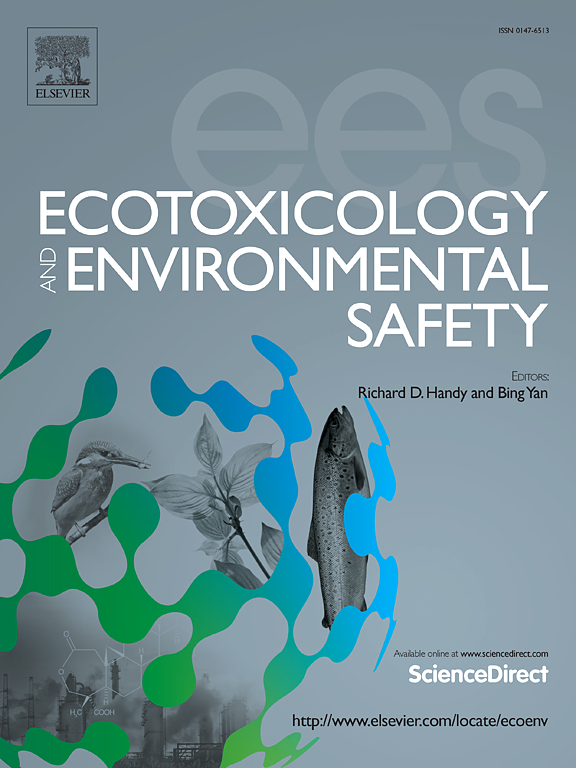Therapeutic intervention with anti-TNF alleviates colonic and hepatic toxicity induced by perfluorooctanoic acid (PFOA)
IF 6.1
2区 环境科学与生态学
Q1 ENVIRONMENTAL SCIENCES
引用次数: 0
Abstract
Perfluorooctanoic acid (PFOA) is a prevalent and chemically stable environmental contaminant. Our preliminary data suggest that chronic exposure to PFOA induces colonic damage in mice that resembles inflammatory bowel disease (IBD). Anti-TNF therapies are commonly used in the clinical management of IBD. Building upon our previous findings, we administered anti-TNF treatment to mice exposed to PFOA. Our results show that anti-TNF therapy significantly reduces the colonic inflammatory response, activation of the NLR family pyrin domain containing 3 (NLRP) inflammasome, and apoptosis induced by PFOA. Additionally, anti-TNF treatment restores intestinal barrier integrity, which is disrupted by PFOA exposure, and enhances the regenerative capacity of the colon by promoting intestinal stem cell function. Furthermore, anti-TNF therapy effectively mitigates hepatic inflammation, liver dysfunction, lipid metabolism disturbances, NLRP3 inflammasome activation, and apoptosis in the liver triggered by PFOA. In conclusion, our study provides compelling evidence that anti-TNF therapy can alleviate both colonic and hepatic injuries induced by PFOA exposure. This research expands our understanding of environmental toxin-induced diseases and offers potential therapeutic strategies for managing PFOA-related disorders in the future.
抗肿瘤坏死因子治疗干预减轻全氟辛酸(PFOA)诱导的结肠和肝毒性
全氟辛酸(PFOA)是一种普遍存在且化学性质稳定的环境污染物。我们的初步数据表明,长期暴露于PFOA会导致小鼠结肠损伤,类似于炎症性肠病(IBD)。抗肿瘤坏死因子治疗通常用于IBD的临床治疗。基于我们之前的发现,我们对暴露于PFOA的小鼠进行了抗tnf治疗。我们的研究结果表明,抗tnf治疗可显著降低结肠炎症反应,激活NLR家族pyrin domain containing 3 (NLRP)炎性小体,以及PFOA诱导的细胞凋亡。此外,抗tnf治疗可恢复被PFOA暴露破坏的肠道屏障完整性,并通过促进肠道干细胞功能增强结肠的再生能力。此外,抗tnf治疗可有效减轻PFOA引发的肝脏炎症、肝功能障碍、脂质代谢紊乱、NLRP3炎性体激活和肝脏凋亡。总之,我们的研究提供了令人信服的证据,证明抗tnf治疗可以减轻PFOA暴露引起的结肠和肝脏损伤。这项研究扩大了我们对环境毒素引起的疾病的理解,并为未来管理pfoa相关疾病提供了潜在的治疗策略。
本文章由计算机程序翻译,如有差异,请以英文原文为准。
求助全文
约1分钟内获得全文
求助全文
来源期刊
CiteScore
12.10
自引率
5.90%
发文量
1234
审稿时长
88 days
期刊介绍:
Ecotoxicology and Environmental Safety is a multi-disciplinary journal that focuses on understanding the exposure and effects of environmental contamination on organisms including human health. The scope of the journal covers three main themes. The topics within these themes, indicated below, include (but are not limited to) the following: Ecotoxicology、Environmental Chemistry、Environmental Safety etc.

 求助内容:
求助内容: 应助结果提醒方式:
应助结果提醒方式:


